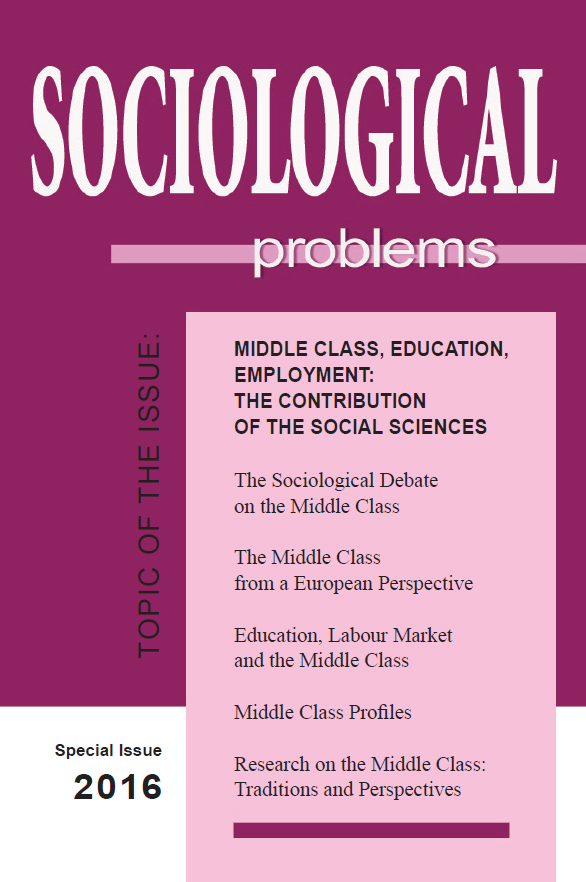The Middle Class and Middle-class Jobs: Victims of Technological Progress?
The Middle Class and Middle-class Jobs: Victims of Technological Progress?
Author(s): Jouko NikulaSubject(s): Social Sciences, Sociology, Applied Sociology, Social development, Social differentiation, Economic development
Published by: Институт по философия и социология при БАН
Keywords: middle class; Finland; quality of work
Summary/Abstract: During the last few years, increasing interest and attention has been focused on the development that a large share of middle-class jobs (and middle-class positions) are under threat of extinction. The main cause of this is said to be the digitalization and computerization of work processes, especially in the service sector. As societies are becoming more and more self-service societies, where ‘clients’ themselves take care of banking services, organizing travels and numerous other bureaucratic matters, whole occupational groups are becoming obsolete. The main motivator in this process has been the need of the companies to economize on their work processes and increase productivity using modern technologies. Only some sectors are not threatened by digitalization, but even if productivity is growing in these, this does not entail increasing employment. On the contrary, since 2000 the number of jobs in most Western societies has started to decrease at a growing pace. In a longer run, this will result in a deep crisis of capitalism, because the loss of work for a major part of the middle class will mean rapid impoverishment. However, digitalization is not purely a threat; it can bring many positive changes to work. For example, a study on clerical work in the Finnish financial sector indicated that the development of skills and self-development has become easier thanks to digitalization. Digitalization has also brought some challenges and downsides to work, for example the amount of work and work strain have increased, with important psychological effects. In this article, I analyse how the work of the Finnish middle class has changed during the last 10–15 years. What groups have been ‘winners’ and what groups have been ‘losers’ in this development? The analysis is based on the Finnish quality of work life; the results show that the Finnish middle classes score well on work-based training, i.e. they have well-organized possibilities to upgrade their work skills at their workplace. They also have a say in their work, indicated by the possibilities for participation in many aspects of decision-making. On the negative side, there are increasing signs of diminishing work flexibility, both in terms of time and content, increasing job demands, and job-related stress. All these features indicate a loss of a traditional feature of middle-class jobs – autonomy.
Journal: Социологически проблеми
- Issue Year: 48/2016
- Issue No: Special
- Page Range: 46-61
- Page Count: 16
- Language: English
- Content File-PDF

